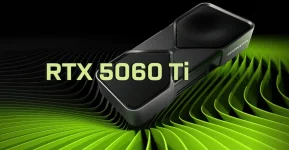NVIDIA released two RTX 5060 Ti models—one with 8GB memory and another with 16 GB. The 8GB version struggles badly with modern games at higher resolutions. HardwareUnboxed testing shows massive performance gaps between these models. In The Last of Us Part II at 4K settings, the 16GB card delivered 120% better frame rates than the 8GB version.
The memory limitation severely limits Blackwell architecture's capabilities. Frame rate differences reached up to 320% in some gaming scenarios, making the 8GB model almost unusable for newer titles. Other popular games, like Final Fantasy XIV and Hogwarts Legacy, showed 30-40% performance differences between the models. Most reviewers received the 16GB version for testing, hiding these issues initially.
Gamers expected NVIDIA to compete well against AMD's RX 9070 series with these new cards. Instead, the company released an 8GB model that can't handle current gaming demands. The test results make it clear - modern players should avoid the 8GB variant completely. Anyone looking for a quality gaming experience at 2K or 4K resolutions needs more video memory than the smaller model offers.
The memory limitation severely limits Blackwell architecture's capabilities. Frame rate differences reached up to 320% in some gaming scenarios, making the 8GB model almost unusable for newer titles. Other popular games, like Final Fantasy XIV and Hogwarts Legacy, showed 30-40% performance differences between the models. Most reviewers received the 16GB version for testing, hiding these issues initially.
Gamers expected NVIDIA to compete well against AMD's RX 9070 series with these new cards. Instead, the company released an 8GB model that can't handle current gaming demands. The test results make it clear - modern players should avoid the 8GB variant completely. Anyone looking for a quality gaming experience at 2K or 4K resolutions needs more video memory than the smaller model offers.












